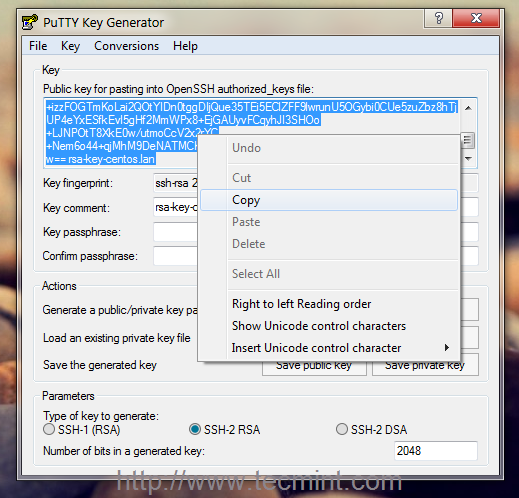
- #PUTTY SSH AUTHENTICATION AGENT SERIAL#
- #PUTTY SSH AUTHENTICATION AGENT SOFTWARE#
- #PUTTY SSH AUTHENTICATION AGENT PASSWORD#
For WinSCP, from the Login screen, select the site, select Edit for an existing site, then Advanced, SSH/Authentication and check 'Attempt authentication with Pageant'. For PuTTY-CAC, select Connection/SSH/Auth and select 'Attempt authentication using Pageant'. It holds your private keys in memory so that you can use them whenever you are connecting to a server.
#PUTTY SSH AUTHENTICATION AGENT SERIAL#


I assumed it was the latter - that having an ssh-agent running on the host would be necessary for agent forwarding, so I set it up at the beginning, but that was a mistake.įirst I ssh to host ccam (a raspberry pi) with no Agent Forwarding and confirm there's no agent socket or added keys: The forwarding is like ssh port-forwarding: it's tunnelling, not client-server negotiation. There's no debug output I could see to explain what was happening, the host just silently uses it's existing ssh-agent and no forwarding occurs.
#PUTTY SSH AUTHENTICATION AGENT SOFTWARE#
This is the verbose output of the second ssh: ssh -v Debian-5ubuntu1, OpenSSL 1.0.1 ĭebug1: Reading configuration data /etc/ssh/ssh_configĭebug1: /etc/ssh/ssh_config line 19: Applying options for *ĭebug1: Connecting to b1 port 22.ĭebug1: identity file /home/pupeno/.ssh/id_rsa type -1ĭebug1: identity file /home/pupeno/.ssh/id_rsa-cert type -1ĭebug1: identity file /home/pupeno/.ssh/id_dsa type -1ĭebug1: identity file /home/pupeno/.ssh/id_dsa-cert type -1ĭebug1: identity file /home/pupeno/.ssh/id_ecdsa type -1ĭebug1: identity file /home/pupeno/.ssh/id_ecdsa-cert type -1ĭebug1: Remote protocol version 2.0, remote software version OpenSSH_5.9p1 Debian-5ubuntu1ĭebug1: match: OpenSSH_5.9p1 Debian-5ubuntu1 pat OpenSSH*ĭebug1: Enabling compatibility mode for protocol 2.0ĭebug1: Local version string SSH-2.0-OpenSSH_5.9p1 Debian-5ubuntu1ĭebug1: kex: server->client aes128-ctr hmac-md5 noneĭebug1: kex: client->server aes128-ctr hmac-md5 noneĭebug1: expecting SSH2_MSG_KEX_ECDH_REPLYĭebug1: Server host key: ECDSA 35:c0:7f:24:43:06:df:a0:bc:a7:34:4b:da:ff:66:ebĭebug1: Host 'b1' is known and matches the ECDSA host key.ĭebug1: Found key in /home/pupeno/.ssh/known_hosts:1ĭebug1: ssh_ecdsa_verify: signature correctĭebug1: Authentications that can continue: publickey,passwordĭebug1: Next authentication method: publickeyĭebug1: Trying private key: /home/pupeno/.ssh/id_rsaĭebug1: Trying private key: /home/pupeno/.ssh/id_dsaĭebug1: Trying private key: /home/pupeno/.ssh/id_ecdsaĭebug1: Next authentication method: password:įor me, it was simply that the host I was connecting to ( b1 in the original poster's example) was running it's own persistent ssh-agent. Due to forwarding, I should be able to ssh to from b1 and it should work, without asking me for a password, but it doesn't.
#PUTTY SSH AUTHENTICATION AGENT PASSWORD#
I ssh to it like this: ssh I get logged in without being asked for a password because I already copied my public key. In my own computer, running MacOSX, I have this in ~/.ssh/config Host *ī1 is a virtual machine running Ubuntu 12.04.


 0 kommentar(er)
0 kommentar(er)
